MBA401 Assessment 2: Video Presentation on Steve Jobs' Leadership
VerifiedAdded on 2022/12/23
|9
|601
|25
Presentation
AI Summary
This presentation analyzes the leadership of Steve Jobs, focusing on his visionary approach and its impact on Apple. It highlights key factors such as his focus, innovation, and effective communication. The presentation examines how his leadership effectiveness can be measured through employee engagement and actions, emphasizing his ability to translate vision into reality. Furthermore, it discusses how his leadership contributed to Apple's success, including the iPhone revolution and brand loyalty. The presentation also portrays Jobs as an unconventional leader, known for demanding excellence and delivering blunt criticism, and concludes by emphasizing his influential and impactful nature, making him a role model and a successful mentor. The presentation is based on the assessment brief provided for the MBA401 course.
1 out of 9
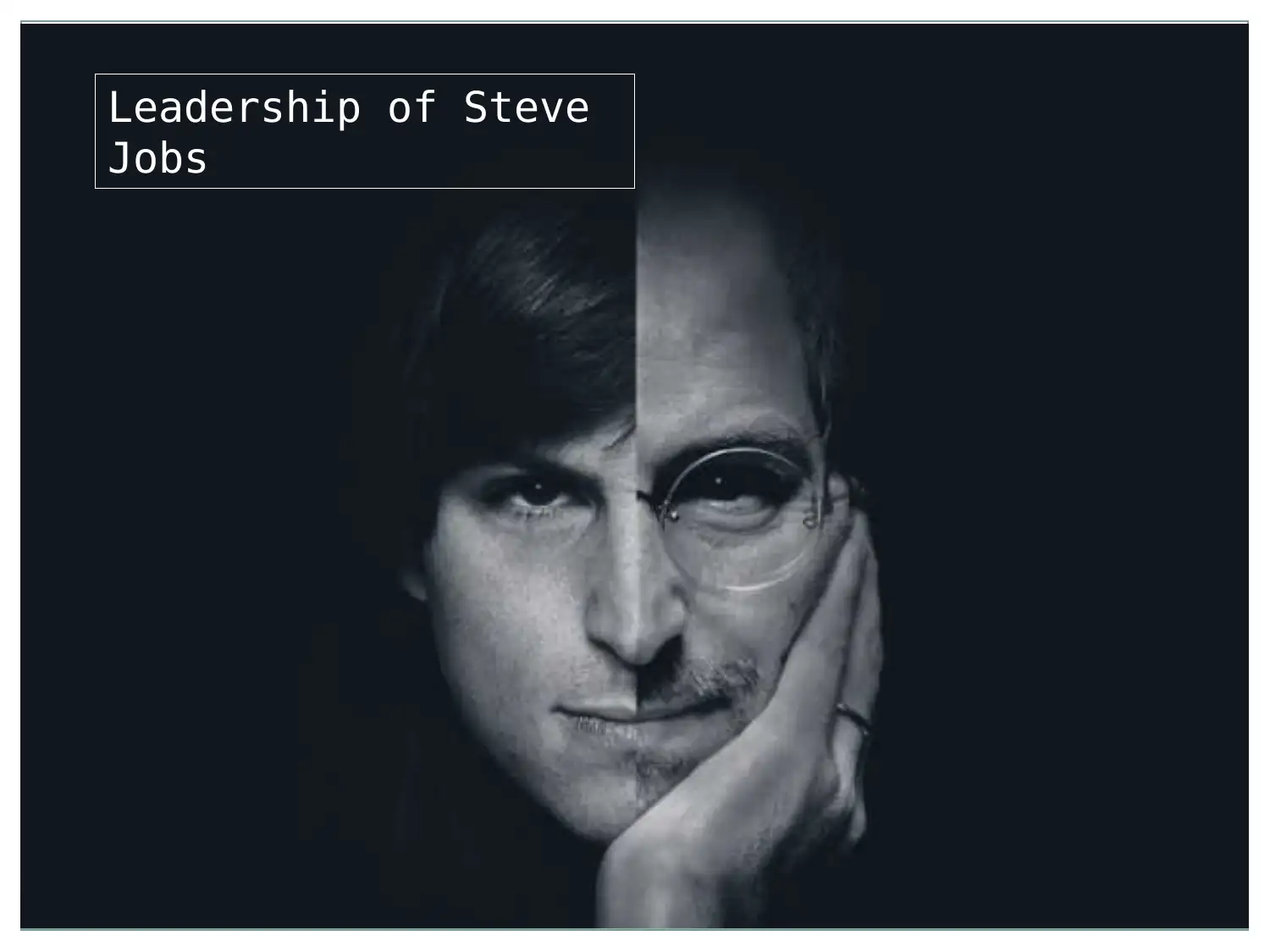
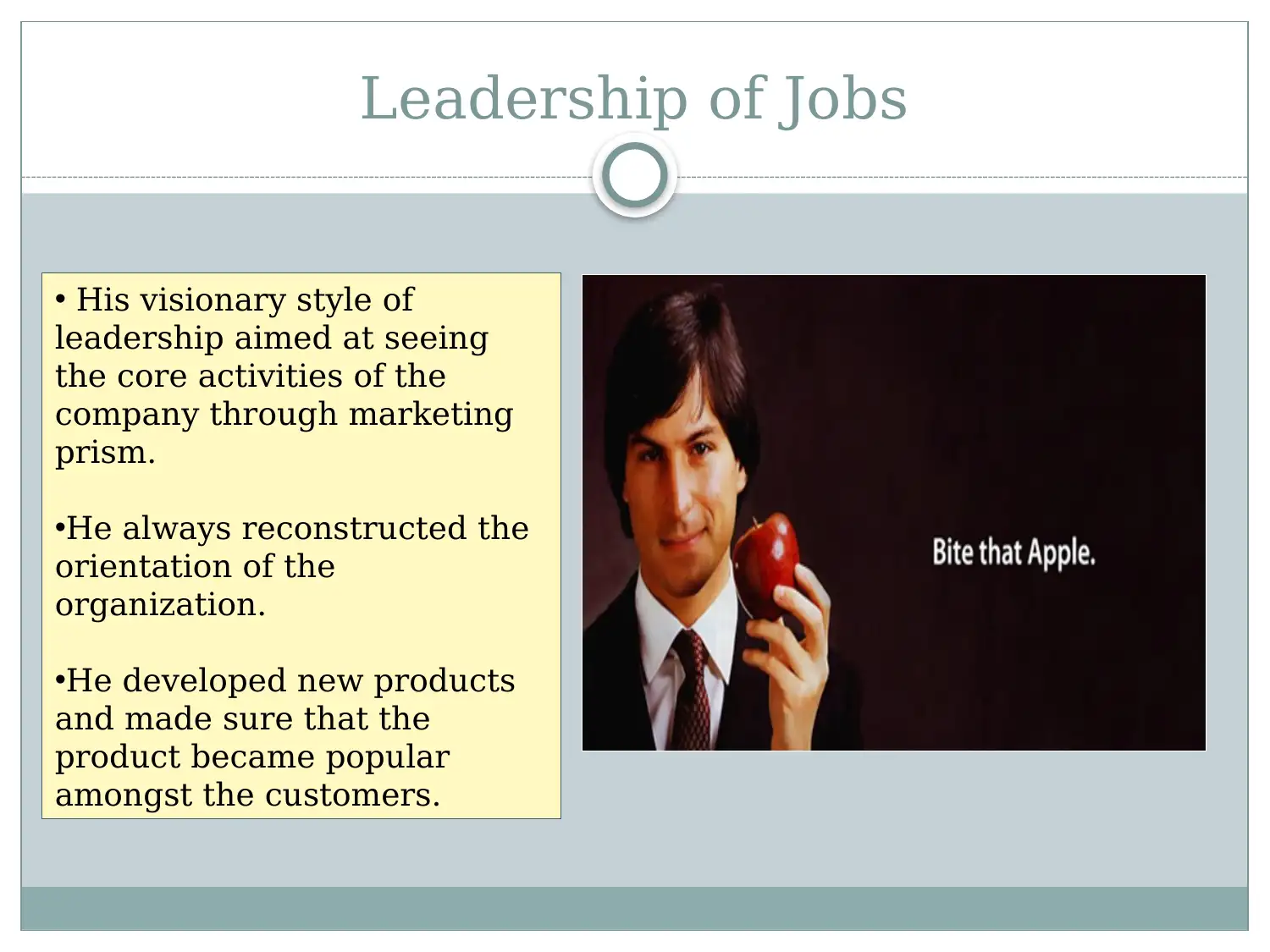
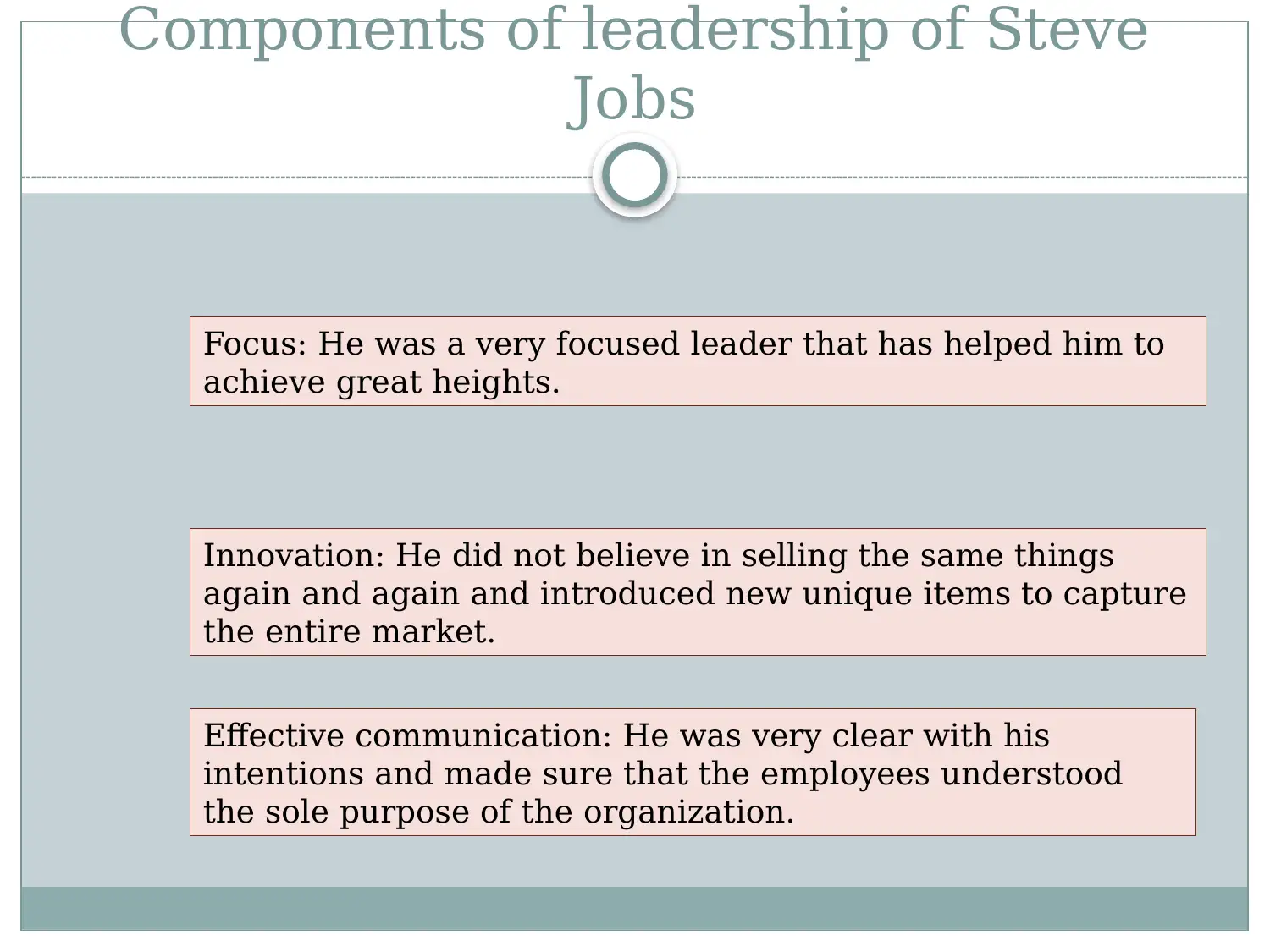

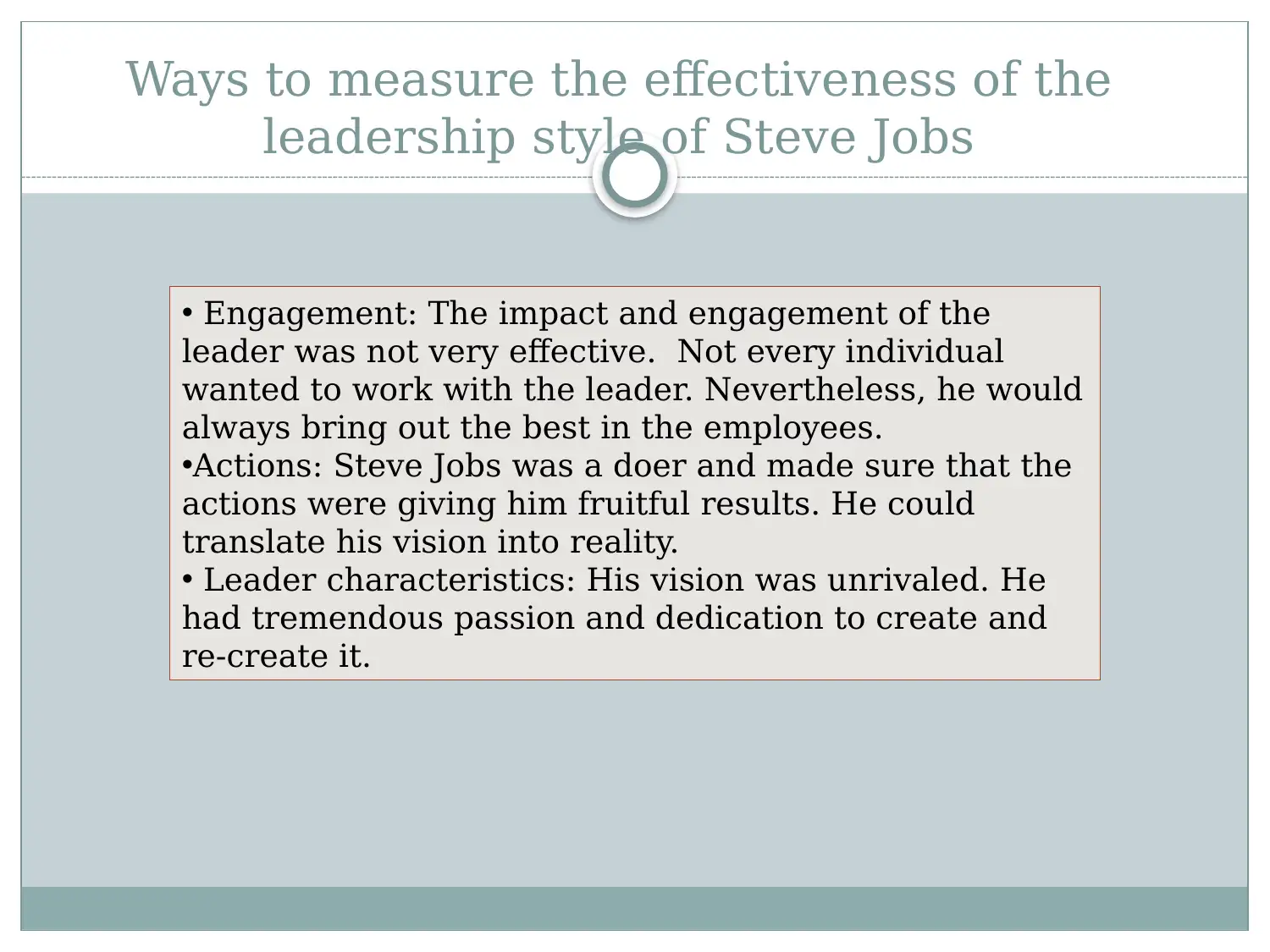
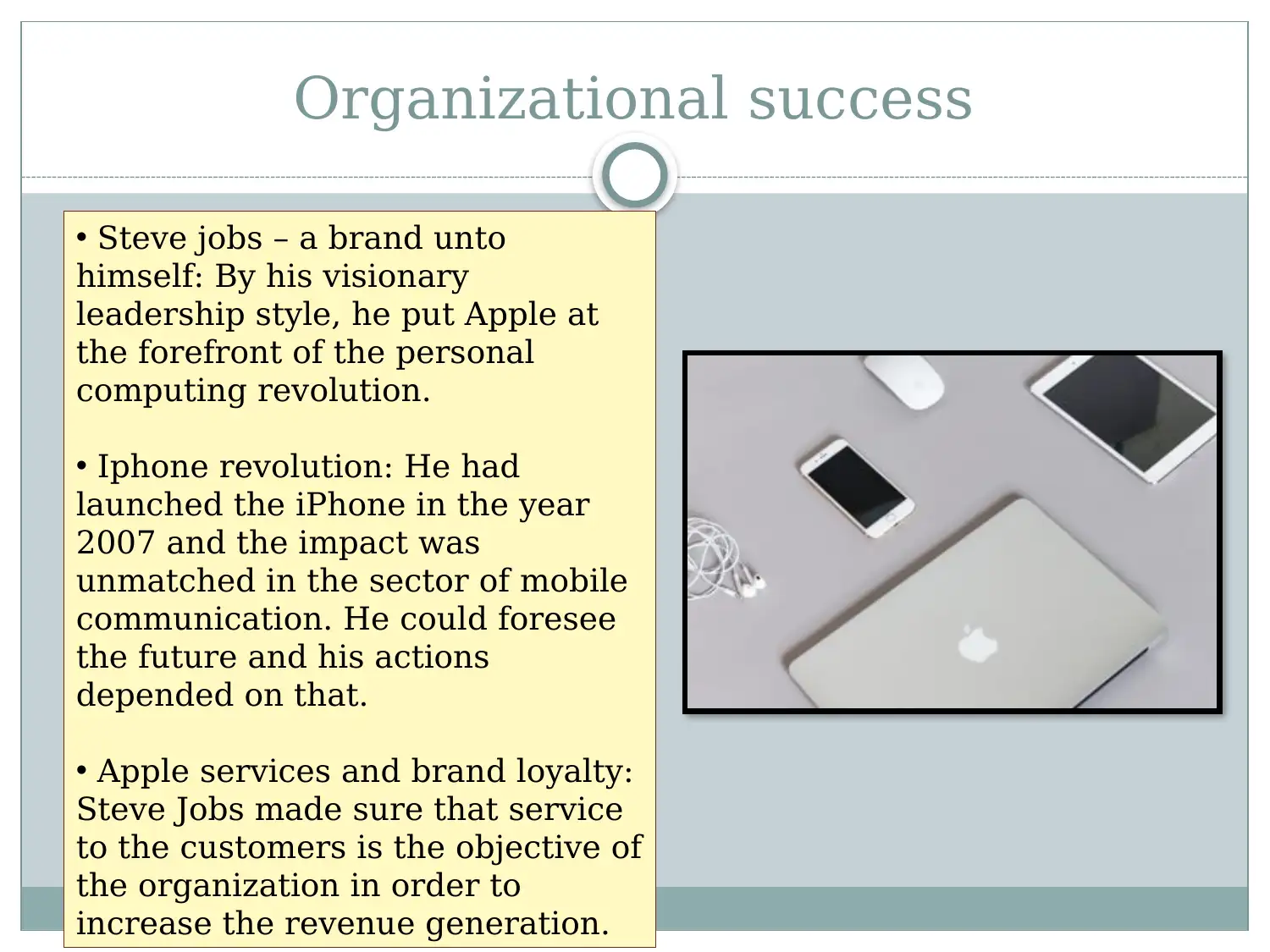
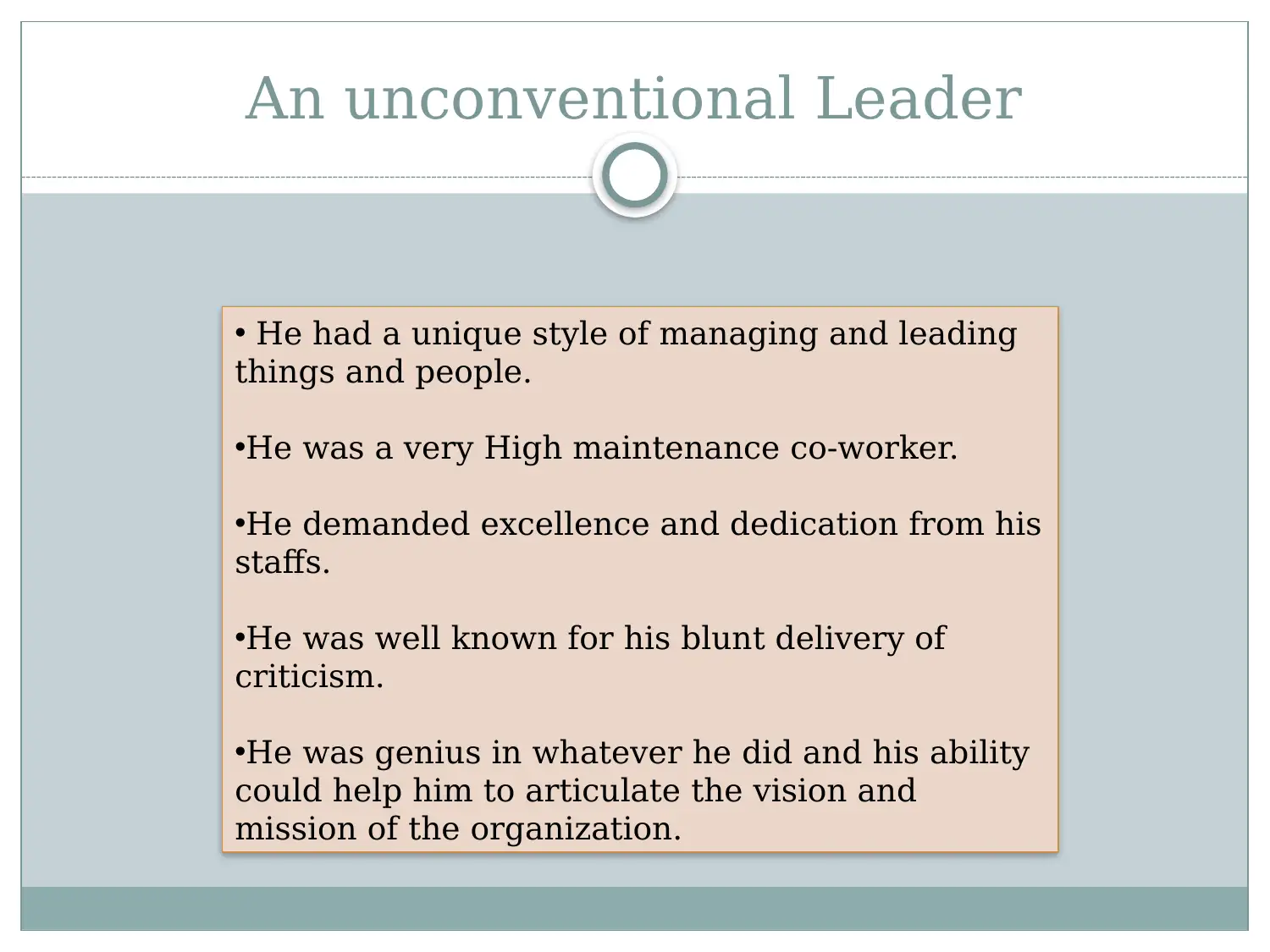
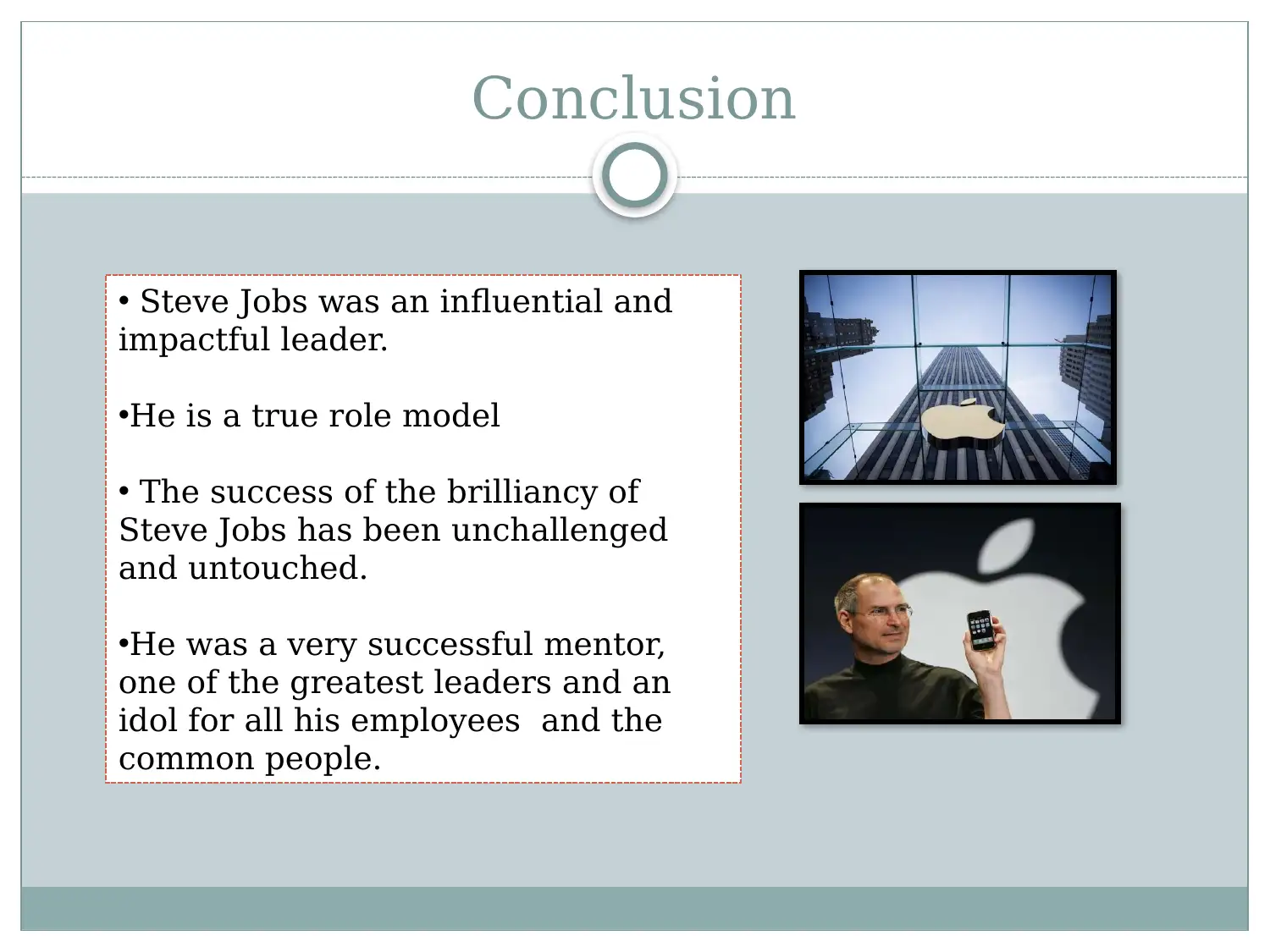
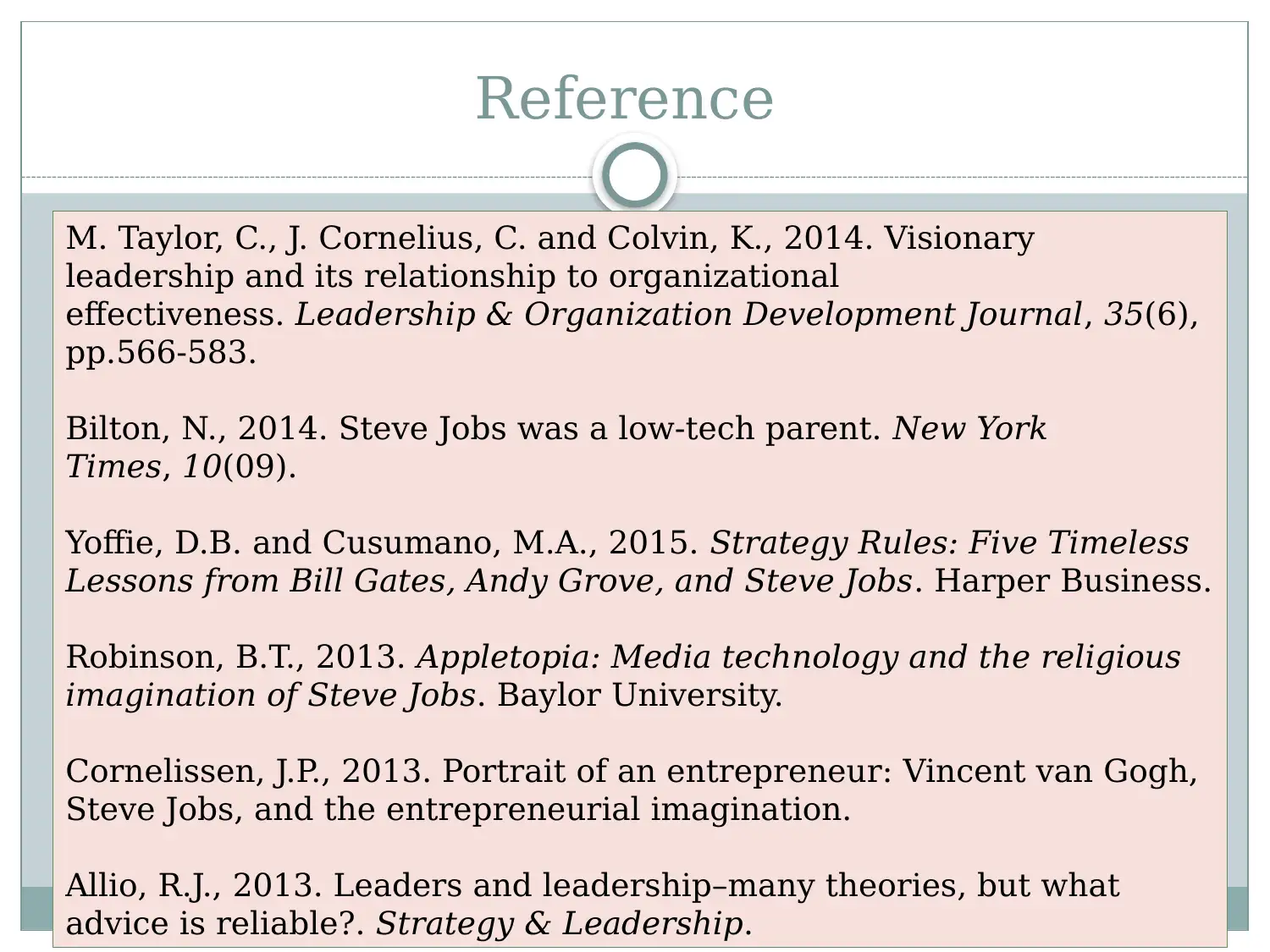






![[object Object]](/_next/static/media/star-bottom.7253800d.svg)